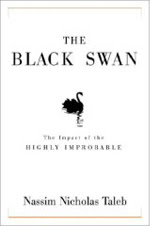 After listening to 53 minutes of music while being on hold and having my call terminated by Sprint's Customer Solution's help line yesterday, I assumed the following explanation:
After listening to 53 minutes of music while being on hold and having my call terminated by Sprint's Customer Solution's help line yesterday, I assumed the following explanation:
- Sprint considers it's customers to be liabilities, not assets.
Not only did Sprint waist 53 minutes of my time and drain my cell phone battery completely but they turned down a potential sale. I have been a satisfied Sprint customer for over 7 years, until now. I have happily ignored the minor inconveniences of not always having signal in the rural area in which I live and have loved all of their cellular services. I raved about their low prices and awesome features they provided to my friends and family. I convinced my family and several of my friends to join the Sprint PCS network and would praise Sprint's abilities to offer exceptional cellular services, until now. Sprint may still have the upper hand in wireless technology, but I no longer care. Why? Because they no longer care about me - the customer.
Maybe they were swamped and couldn't get to my call? Maybe they were maxed out on their resources and couldn't spend another dime in customer relations? Whichever way you look at it, they dropped the ball. They undervalued their most valuable asset - the customer. They considered the opportunity cost situation and chose to put their customers in the cost category while pursuing some other opportunity elsewhere, maybe a new feature or an advancement in technology. They overlooked the value of the customer.
What would happen if Sprint changed their mindset and restructured the way they interacted with their customers? What if they made it fun to call Sprint? For example, they could start things out by saying, "We guarantee you will be able to speak with a representative in 5 minutes or we will credit your account $5". What would happen? The customer would be counting down the minutes, not in frustration and anger, but with excitement hoping nobody would take them off hold until the 5 minute time period had passed. The entire customer experience would flip and the customer would become the winner, not the looser.
Or lets just say that Sprint is maxed out and can't pour anymore resources into customer relations. At the very least they should offer a service to the customer where the customer has the option at the beginning of the call to pay $1 to guarantee that they talk to a representative in under 5 minutes, or pay $5 to guarantee that they will talk to a representative in less than 1 minute. Then the customer has the choice of whether their time is more valuable than their money or vise versa.
If nothing else, Sprint should reward their loyal customers by gathering account information when the customer places a call (length of customer loyalty, [2 years, 5 years, etc], do they pay on time, etc) and have designated representatives that are intended solely for a particular customer group (bronze [0-2 years], silver[2-5 years], and gold[5-10+ years]). If a customer was a part of the gold group, they would be able to speak to a representative much quicker than a customer in the bronze group because Sprint would delegate extra representatives towards their gold customers and less to their bronze customers. I see this as a last resort, but at least this way the loyal customer would stay loyal and happy.
**IMHO it is much better to keep your loyal customers happy then to have a high turn around rate and always be searching for more temporary customers. It requires more resources to add customers to a customer base than to support and maintain the customers a company already has in its clientele.Sprint could set the rules however they wanted but at least loyal customers would be rewarded for their loyalty to the company. Sprint may claim they cannot provide exceptional customer service to all of their customers, but why not at least reward the good customers?
In business we often find ourselves up against a wall. We have limited resources and are not able to delegate 100% of all our resources towards all categories (advertising, marketing, technology, customer relations, etc). A choice must be made as to how much we delegate to each category. But how does one choose? We must consider our priorities, and if you are a company that values your customers you will make them a priority. In business their are assets and liabilities. Assets generate revenue and liabilities take away revenue. We pour everything we have into our assets and try to minimize our liabilities. Sprint has labeled their customers as liabilities by pulling resources and not making them a priority. Instead of investing time and resources, they have cut back. Instead of welcoming customer interaction, they avoid it.
Customers are assets, not liabilities. They feed the company, and in return the company offers services. When a company treats customers as liabilities they are cutting themselves off from the most valuable asset. Let's hope Sprint realizes their mistake before its too late and changes their outlook on customers.
`David









